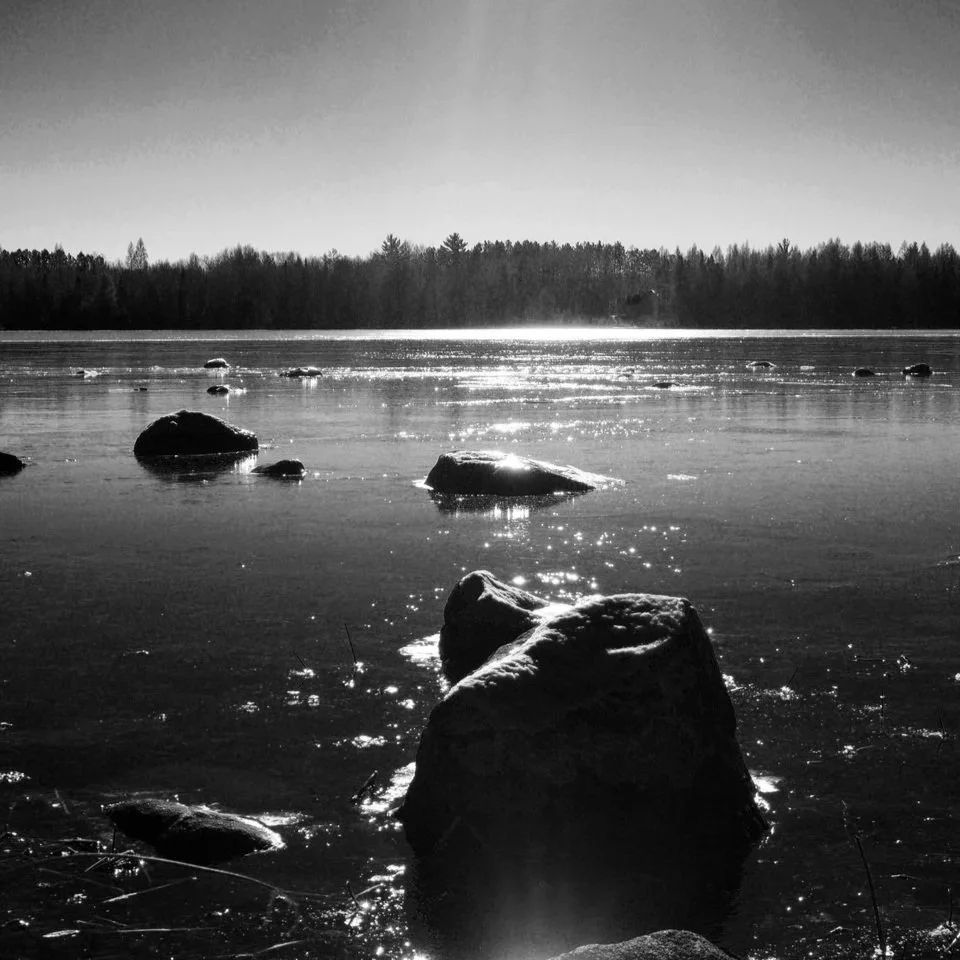In times of summer heat the margins of the day are when we can find comfort and solace. The hours after daybreak bring a renewal; sun rises but heat does not match its arc. You know it will; you will not escape it. But at daybreak when the morning sun holds promise but not the burden of swelter, that time the day is at its best. The freshness of the early hours of a summer day will be the richest that the day will bring and you know that as you stand in the backyard and breathe air that seems more fully charged with life-sustaining flow.
Come evening and shadows cover the yard; come sunset and the heat of the day cracks and lifts its heavy blanket off the land; come evening and you move again toward coolness and as darkness falls there is hope for better times.
It is the middle hours of the day that bring oppressive heat, humidity and despair. One is limited in what one can do, energy drains and enthusiasm with it. In oven of midday the fire of summer burns hottest and the glory of the morning is parched.
Last week the heavy weight of summer came down as if a penance for who knows what transgression we had committed. Heat shimmered a mirage; humidity simmered as if a pot brought to a near boil. The sun pretended no mercy.
But that was midday, that was the afternoon; the mornings still breathed life into the world. I rode bicycle in the coolness of morning shade on back roads and gravel fire lanes. I rode easy in deference to my discouraging lack of fitness. I rode slow because I could not ride any other way. I rode easy and told myself it was a choice.
It was not a choice, it was the stark reality of where I was on that day after a season of precious little time in the saddle and no power in the legs. I did not care. One gets out of riding what one puts in. Too few miles equals too little power in the wheelhouse.
I ride every July in the shadow of the flickering images on TV coverage of the Tour de France where riders spend 21 days in efforts that defy logic, climb mountains indescribably steep, ride mile after mile, day after day and in so doing accomplish the most basic magic trick of the elevated athlete no matter the sport: They make an impossibly difficult task look easy.
Those riders and the images of those riders are in the shadowy corners of my mind in July as I bear down on the pedals, drooped over the handlebars and searching for power that is not there. My legs feel as if they will shatter and I sit up and ease off and know that the hill that I have just crawled up amounts to a wart on the endless road the Tour racers travel.
In the evening as the night comes down and the temperature seeps from the air I watch the TV replay of the Tour even though I view it now with a cynic’s eye after the years of the sport so sullied by the cheaters and the dopers and the Lance Armstrongs of the cycling world who cheated their way to false glory and in so doing made pond scum look like an elevated life form in light of their craven ways.
I watch regardless, watch and file away the images in my mind until the next time I am on the bicycle and put my puny power to the pedals and make my sluggish way along the back roads on a July morning when I know that I am out in a best part of the long summer day and no matter what, I’d not trade places.
I sulk during the heat of the afternoon and wait for evening and the coolness that it will bring, wait for the shadows to cast across the yards and the sun to drop below the trees. I wait to trade afternoon’s heat for the comfort that the evening will bring. That is the way it is supposed to be.
Until last Friday when the sultry heat and overbearing humidity built all day and dusk did not bring absolution from the day’s fever. When the shadows of evening did not fall to the parched ground but instead rose to the sky and darkened in as if building layers of gray, one layer over the other, building and building to charcoal darkness above. When clouds dipped and rose and formed the odd shape called mammatus, a formation so striking and so rare that one lifted eyes skyward to marvel at it. In the gathering under the bruised sky someone looked at the clouds and said, “Those clouds mean trouble.”
Then lightning flashed and thunder roared; hail pelted down hard like birdshot and rain fell in torrents. But in town, no wind. The rain and the hail fell under a night dark and air dead-calm. There was not a hint of breeze as rain lashed the city streets of Rhinelander, a staight-down falling deluge.
We were fortunate, those of us in the city. Not far away the wind roared like a dragon and trees snapped and fell and in the blackness of the storm the only sound was the train-engine howl of the wind unchained and without mercy and the air was filled with the scent of rain and raw wood of downed trees and the night held primal fear.
It passed.The storm passed as all bad times do.
It was cooler in morning; the air fresh But that July morning brought not redemption and hope, dawned instead for many on a new reality and a world that had forever changed in the fury of the night storm and the ancient howl of wind untamed on an evening when a best time the day became the worst.

